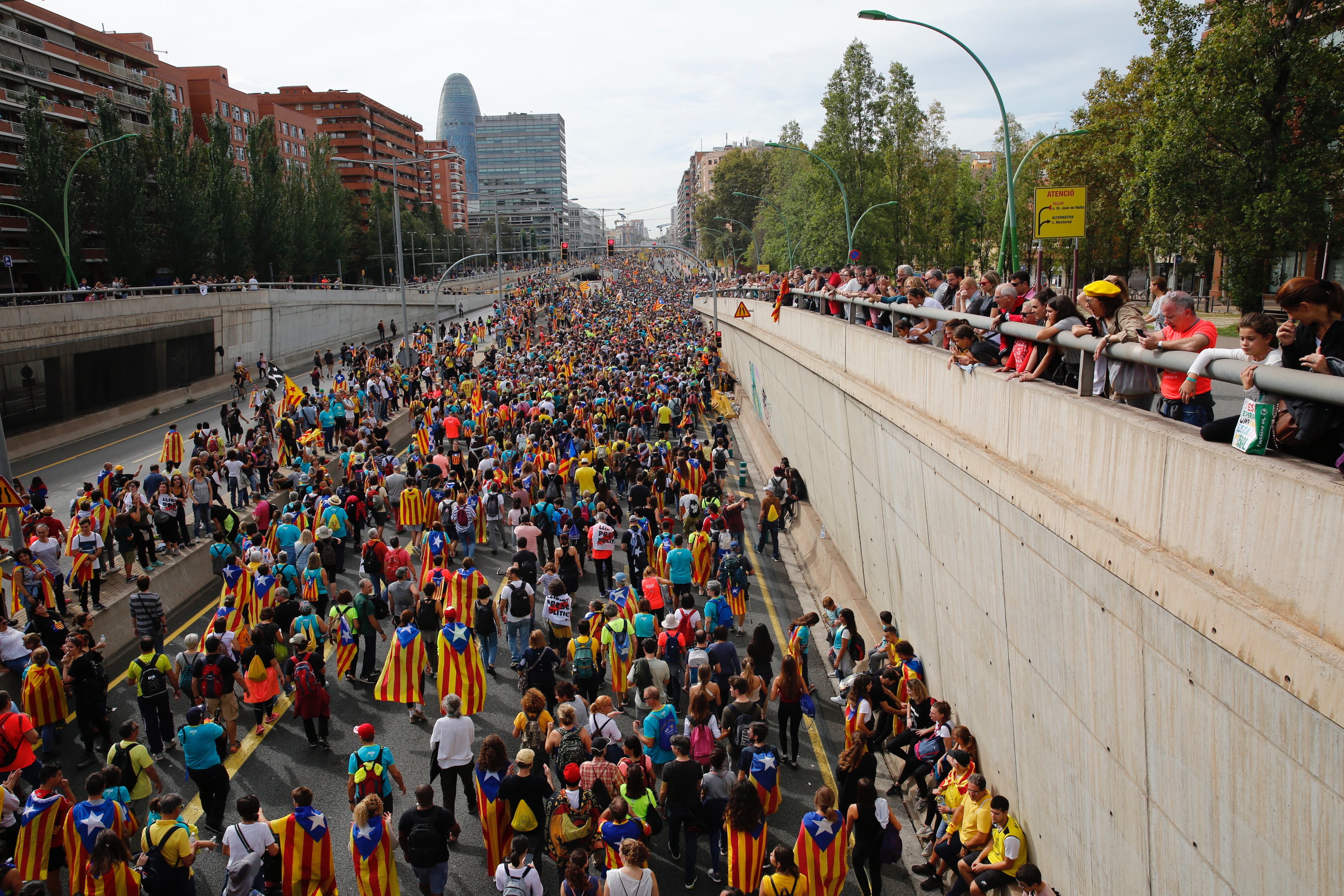British newspaper Financial Times, one of the most influential internationally in the world of business, has today published a pessimistic analysis of the situation in Spain in a wide-ranging report ahead of Sunday's general election. The country faces, they note, not only the issue of Catalonia, "western Europe’s most bitter territorial dispute", but also a "rupture in the old political order" which means it is heading to its fourth general election in as many years, six months after the last one.
The crisis has "polarised opinion on both sides of the political spectrum", they report, despite suggesting at "signs that tempers could soon cool". The article, entitled "Spain prays for a solution to political deadlock" is accompanied by a black-and-white photo of acting prime minister Pedro Sánchez in front of a Catalan flag.

"Spain prays for a solution to political deadlock", read the Financial Times' headline.
The newspaper says that whilst Spain has been "one of the EU’s great success stories in recent decades", "the question now is whether that story of success is coming to an end". It diagnoses the country with an "extreme form of the malaise that has afflicted the EU", namely polarisation in social and political terms and the fragmentation of the party system.
The article, credited to Daniel Dombey in Madrid, blames the new election on Sánchez's "failure to agree a coalition deal with Podemos", whilst noting that Ciudadanos "refused even to entertain the possibility of an [coalition deal] until the very last moment". That's led to an election, Dombey writes, in which Catalonia is "the dominant issue", but in which "fears over a slowing economy" have also been highlighted.

